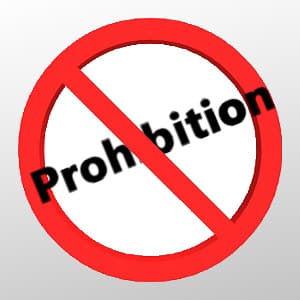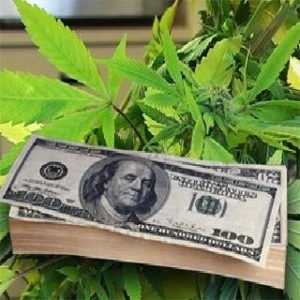 An Analysis Of Arguments Against Ending Marijuana Prohibition
An Analysis Of Arguments Against Ending Marijuana Prohibition
Opponents of marijuana legalization always cling to the same arguments. Recently the legendary Russ Belville debated Dr. Kevin Sabet who has worked in the last three presidential administrations. If you didn’t get a chance to watch it, I suggest you do (I re-posted the video at the bottom of the article). Dr. Kevin Sabet presented what is quite possibly the most accurate representation of marijuana legalization opponent’s arguments. All the classic’s were in there, although Dr. Kevin Sabet presents them in a more rational tone than most opponents do.
I came up with the idea for writing this post a while ago as the last in a series of ‘arguments against’ articles (see arguments against hemp and why they are wrong, and arguments against medical marijuana and why they are wrong). I was going to have to research the marijuana legalization opponents’ side (insert throw up sound) and luckily the Russ Belville/Dr. Kevin Sabet debate came around so I could gather all the wrong ideas that marijuana legalization opponents use in one swoop. Below are the arguments that Dr. Kevin Sabet used in the debate (in bold, in no particular order) and why they are wrong (below Dr. Kevin Sabet’s arguments):
Average marijuana-only offenders don’t really go to jail.
Russ Belville actually preempted this BS in his closing argument, and even Dr. Kevin Sabet’s graph at the end of his own presentation disproves this claim. As Russ Belville pointed out, even ONE person in jail for a marijuana only offense is garbage. Russ Belville provided the example of Patricia Spottedcrow from Oklahoma who was sentenced to 12 years in prison for selling just $31 dollars worth of marijuana. He also provided the example of Dale Schafer and Dr. Molly Fry who are currently serving 5 years in federal prison for providing medical marijuana legally to cancer patients.
I would offer up the example of Robert Platshorn, who is just now starting to rebuild his life after serving the longest prison sentence for a marijuana only related offense in United States history. These are far from the only people that have had their lives torn apart, as well as their friend’s and family’s lives. Marijuana legalization opponents don’t ever provide a straight forward explanation as to how this policy benefits society in anyway. Instead, they will act like you have to break some eggs to make an omelet every once in a while, so ho hum. I wonder if they would change their tune if they were on the other side of an unjust policy…
Marijuana is a drug; some drugs harm society; therefore marijuana absolutely harms society
Marijuana legalization opponents always try to play the ‘verbal three card monte.’ If marijuana legalization opponents were forced to stick to marijuana only, the weaknesses of their arguments would be obvious. There are holes all over the place, and marijuana legalization opponents always fill them in with facts, stats, and stories about heroin, cocaine, etc. Almost all marijuana supporters will be the first to point out the detrimental effects of real drugs on society. Heroin, cocaine, pharmaceuticals, meth, and REAL drugs are detrimental to society, and have resulted in death and suffering. However, marijuana does not fall into that same category, not even close. We are talking about marijuana. We are not talking about crack, despite marijuana legalization opponent’s constant attempts to divert the conversation in that direction.
Alcohol and tobacco cost more money than they bring in; marijuana would be no different.
Marijuana legalization opponents will always provide statistics about how much money alcohol and tobacco generate versus how much money it costs for society to clean up the mess (added health costs, accidents, etc). I love Russ Belville’s response in the debate, where he wholeheartedly agrees with the statistics, but points out the glaringly obvious fact that marijuana does not pass on the same costs to society. How much of tobacco and alcohol costs come from health problems that society incurs that are not present with marijuana use? There are no doubt a laundry list of things that result in the statistics that marijuana legalization opponents present that have nothing to do with marijuana use.
 If marijuana were legal, vehicle related problems will rise.
If marijuana were legal, vehicle related problems will rise.
Dr. Kevin Sabet refers to a study published in Britain stating that marijuana use results in twice as many crashes as alcohol use. I would point to a study in AMERICA by the National Household Survey on Drug Use and Health and the National Highway Traffic Safety Administration who said the following, “Comparing traffic deaths over time in states with and without medical marijuana law changes, the researchers found that fatal car wrecks dropped by 9% in states that legalized medical use – which was largely attributable to a decline in drunk driving. The researchers controlled for other factors like changes in driving laws and the number of miles driven that could affect the results.” The link I provided in this paragraph clearly shows that worries about drugged driving are exaggerated.
Marijuana legalization will not help the judicial system.
Dr. Kevin Sabet made an argument that I have never heard before – marijuana arrests will possibly go up if marijuana was legal, due to the fact that it will be more available. Dr. Sabet uses the statistic that there were 2.7 million alcohol related arrests in 2008, despite the fact that it’s legal. Marijuana related arrests were 847,000 in the same year. I would point out that drinking too much alcohol can often results in irrational, and sometimes even violent behavior. When a person is really drunk, they lose control of their actions and do stupid things. When people consume too much marijuana, they go to bed early. Trust me, I go to bed at like 8:30 pm every night…
If marijuana was legal, consumption would go up.
I always hear this argument and want to say, ‘so what?’ Is increased consumption by itself a bad thing? If there is more marijuana consumption after legalization (which itself is debatable), what are the negative ramifications? Lost motor skills and decreased productivity? How much? Enough to wage an expensive war and cling to a failed public policy? I don’t think so. I think clumsy people will be clumsy, and lazy people will be lazy. That will not change if marijuana is legal or not.
I had to hit pause on the YouTube video, rub my eyes, pinch myself to make sure I was awake, and then look at Dr. Kevin Sabet’s power point slide one more time. Dr. Sabet actually argued that tax evasion will be a problem if marijuana became legal…I have to ask, isn’t tax evasion an issue right now? In Dr. Kevin Sabet’s world, all black market marijuana dealers and cartels pay their taxes on their marijuana sales right now, but will stop doing so once marijuana is legal…Dr? Really? I hate to be snarky, but that just blows my mind.
Price for marijuana will drop 80% after legalization, so revenue estimates are overblown.
The RAND corp. was responsible for this study, and I have always looked with suspicion towards the study because how in the F would anyone at the RAND corp. (or any corp.!) know about the marijuana sales industry? Supply and demand would take over in the market and would set the price for marijuana. Since marijuana quality and availability varies so much across the nation, prices would fluctuate as a result. With expert marijuana growers and retailers coming out of the shadows, the best of the best would rise to the top and be rewarded by the market, and it would weed out a lot of rookies (pun not intended).
Prices would no doubt decrease in some areas, but not all, and would only go down slightly. Marijuana is more available than ever before at storefronts in California, yet people still pay $75 an eighth in Hollywood. Compare that with Southern Oregon where you can purchase an eighth for $25 dollars of the same quality. To make a blanket statement that marijuana prices will drop by ‘X’ percentage, no matter what, show just how little marijuana legalization opponents actually know about the marijuana industry.
Cartels will thrive because they will take advantage of marijuana legalization. – kidnapping? extortion? how?
I doubt marijuana legalization opponents will ever realize that America marijuana consumers do not want to deal with cartels, and that cartels have the worst marijuana on the planet. IF a marijuana consumer deals with someone from a cartel, it’s because they are forced to by a system that does not allow safe access to marijuana. The same marijuana consumer would go to a regulated, legal establishment or delivery service in a heartbeat if they were present the option. Cartels would not take advantage of legalization. They would lose tremendous amounts of money, which would be diverted to main street America where it can be properly accounted for and taxed reasonably.
 Marijuana consumers only get arrested if they are doing something bad.
Marijuana consumers only get arrested if they are doing something bad.
Dr. Sabet states in the video something that I have heard many marijuana legalization opponents say – if you aren’t doing anything wrong and just smoking marijuana in private, you won’t get arrested. REALLY?! Can I get that in writing? Marijuana activists have been fighting to get the actual laws to reflect the exact claim that Dr. Sabet stated for decades now. I was charged with possession of less than an ounce in Oregon, despite the fact that I was not intoxicated and just simply had it in my pocket as I was driving in my vehicle. Luckily in Oregon it’s not a crime, but had I been in a different state, I would have been going to jail. I feel like marijuana opponents are just being mean when they dangle stuff like that in front of us, pretending like they actually believe it, even though they won’t follow it up with actions.
Kids will have more access to marijuana if it were legal.
I bought marijuana for the first time when I was 12 years old. The person I bought it from did not ask for my ID, and there were no safety precautions in place to prevent me from acquiring the marijuana. I purchased marijuana in the same fashion over and over the rest of my youth. I was by no means the exception, as I was often purchasing the marijuana from another youth. Marijuana is available, regardless if it is legal or not. Kids will likely still be able to get marijuana after it becomes legal. However, it’s undeniable that at least some marijuana access to children will be cut off because they will have to go into an establishment and get the regulated marijuana. There will still be isolated incidents of kids stealing it, or getting an older person to purchase it for them, but there will be barriers in place that are not in place now, which will have an impact. Opponents can debate how much of an impact, but they can’t deny the impact altogether, which they always do.
Marijuana not a focus of police resources as is.
This is just simply not true. Google marijuana bust (or go to just about every marijuana website on the net) and you will read about police force after police force focusing quite a bit of resources, focus, and energy towards marijuana only enforcement. This is another thing that I would love to get on paper every time a marijuana opponent says it. If this were really true, then there would be no need for outdated laws, and laws should be changed to reflect reality. However, opponents know that this is just a delay tactic, and that if they stick to this rhetoric, they will buy more time.
Marijuana legalization will not fix the drug cartel problem.
No S! But marijuana legalization will help. An all or nothing approach to the situation just result in the same results that we have seen in the past – cartel violence, missed tax revenue, etc. I have never heard a rational marijuana supporter state that marijuana legalization alone will fix the cartel problem. I have heard them state repeatedly that it will hurt cartels, not eliminate them, which is still a VERY worthwhile cause.
Today’s marijuana is more potent.
Again, so what? I would point out that while marijuana potency has tripled since people smoked ‘Woodstock weed,’ ill effects to society has not tripled. Marijuana potency has tripled, marijuana deaths is exactly where it has always been: ZERO. Just as potency has raised, so has people’s tolerance. People used to smoke marijuana with no real thought about how to do it responsibly. That has changed a lot since Woodstock. Increased marijuana potency by itself poses no danger to anyone, just as increased consumption by itself poses no danger to anyone.
We need more research; We need more facts
The fact of the matter is, we can hurl facts and research all day and marijuana opponents will never accept reality. I have heard Russ Belville talk about wanting to publish his ‘Big Book of Marijuana Facts.‘ I guarantee there is more gold in there than marijuana opponents could ever imagine, yet if they were given a personal copy and required to read it, after the last page they would still be calling for more research and facts to push the conversation to a later time. I’ve always thought of the hypothetical situation where you get all politicians to agree ahead of time that we need ‘X’ number of studies and ‘X’ amount of data. Even after ‘X’ is achieved, they will just say we need more research and data. It’s one of the most frustrating things. The science is out, the data is there, yet marijuana opponents refuse to acknowledge any of it.
When you take a marijuana legalization opponent’s entire argument and cut away all of the talk about REAL drugs like heroin, statistics about things that aren’t related to marijuana, fact-less anecdotes, etc. what is left? Not much. Dr. Kevin Sabet is by all accounts the best of the best that marijuana opponents have to offer up, and even he has to use insane arguments to patch in the holes in his argument. In his presentation, Dr. Sabet refers to a statistic that 1/10th of people get addicted to marijuana when they use it once and 1/10th of DUI’s result in fatalities, and that some how that’s the same. He was trying to make the point that despite the fact that marijuana addiction is relatively low, so is death from DUI’s, yet it’s still a worth while cause. A bit of a stretch…
Dr. Sabet put up a slide showing that people in marijuana related treatment doubled between 1993 and 2007, and that somehow that points to some kind of huge problem. First of all, the enrollments to treatment are still less than half of alcohol treatments. Second of all, Dr. Sabet points out that half of the enrollments for marijuana are mandated by the judicial system, so did it really double, or did the requirements by courts double? A prime example of how statistics are manipulated by marijuana opponents.’
Dr. Sabet ends his presentation with a slide that states, “There are many ways to reduce incarceration and other related consequences without legalizing drugs.” The options that Dr. Sabet presented were: prevention, treatment, recovery, smart enforcement, and international efforts. I agree that we should use prevention for substances that truly harm society, which is a category marijuana does not fit into.
I agree that we should have treatment, but for drugs that actually require it. Forcing someone to go to rehab against their will for marijuana simply because they use marijuana is wrong, and helps no one. I feel the same way about recovery. Smart enforcement is something that marijuana activists have been BEGGING for since the start of marijuana prohibition. And as far as international efforts go, the world is having a discussion on marijuana legalization while our leader stick their heads in the sand. If we told those nations that we want international efforts, they would likely tell us that they have been trying for years, but we were too busy clinging to outdated arguments…
Marijuana supporters are not even really talking about legalization. We are talking about re-legalization. We are talking about ending a failed policy of marijuana prohibition that has wasted dollars, ruined lives, and provided no benefit to America in any way shape or form. How marijuana opponents can get on board with that is beyond me!









